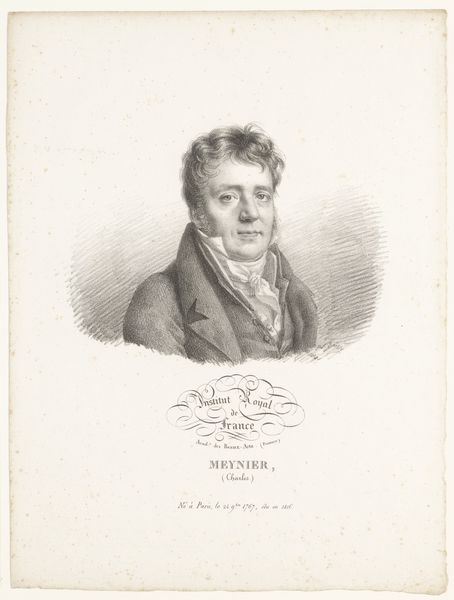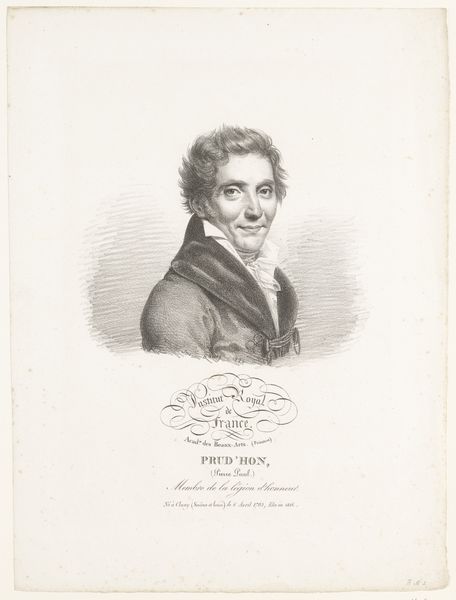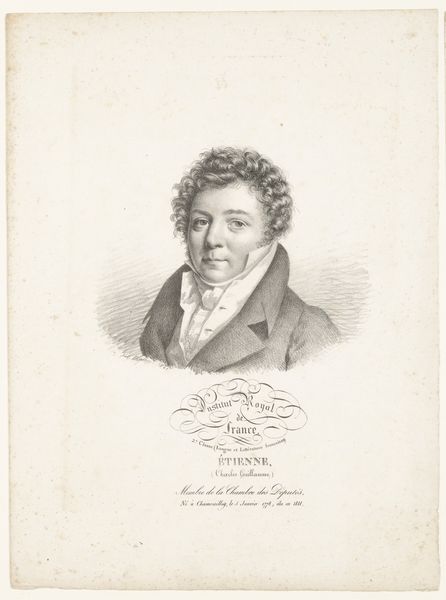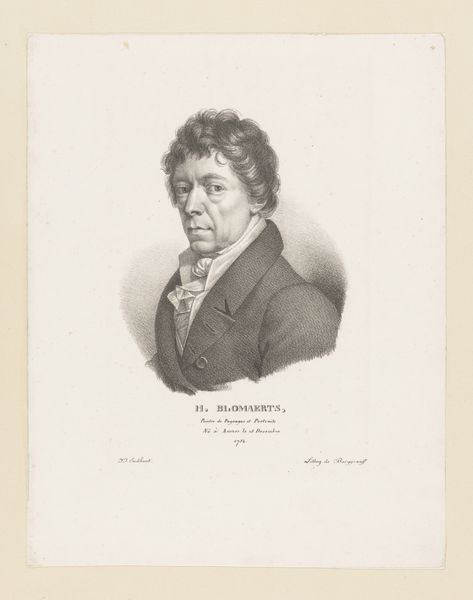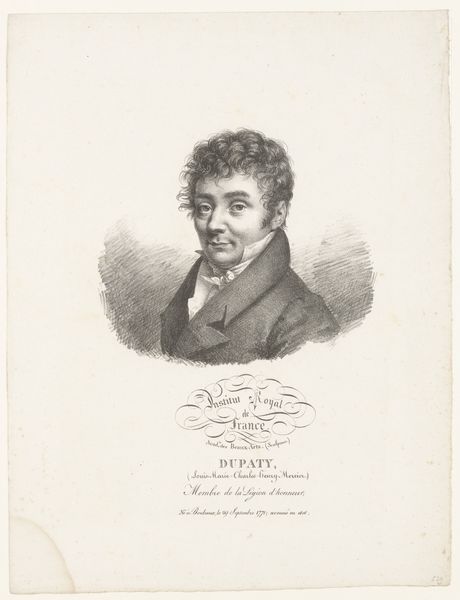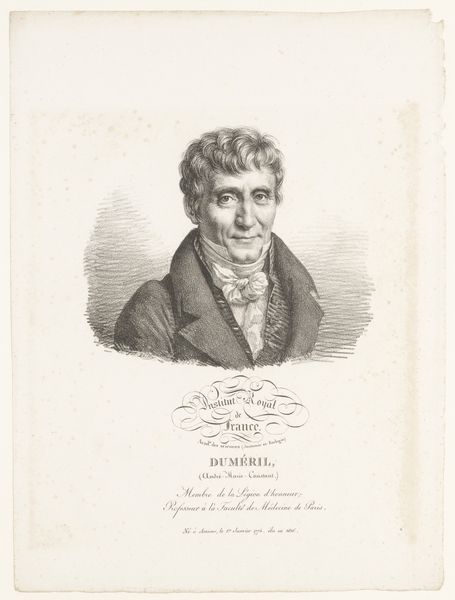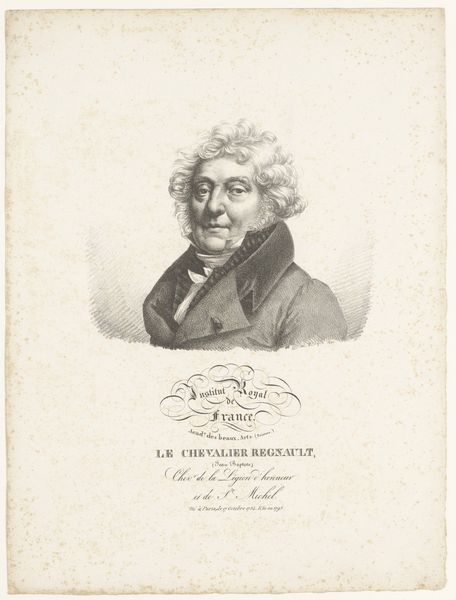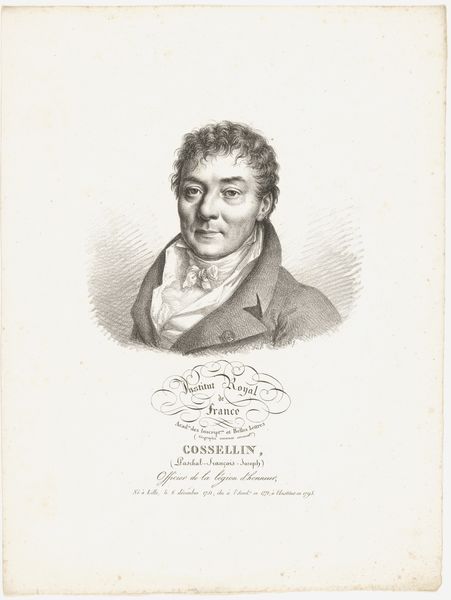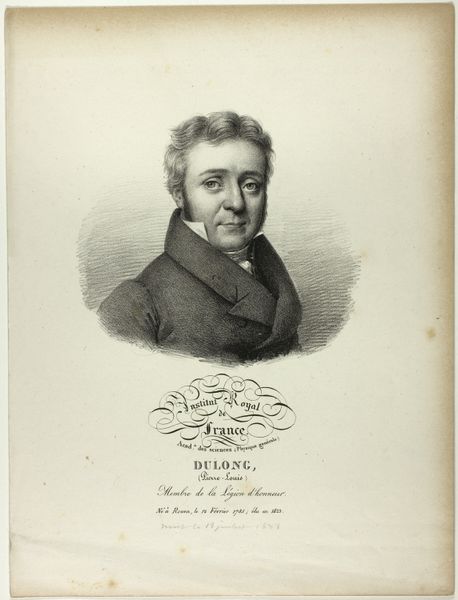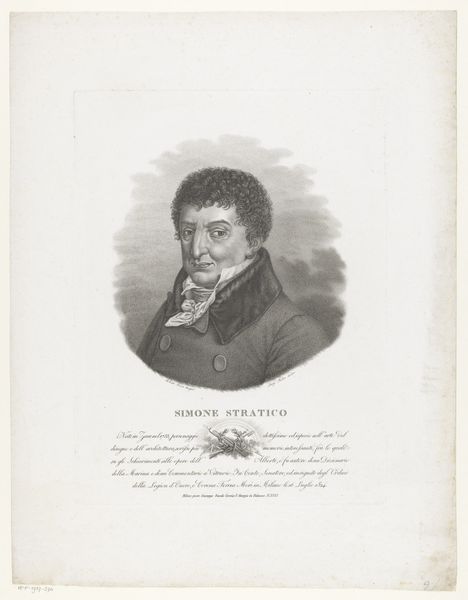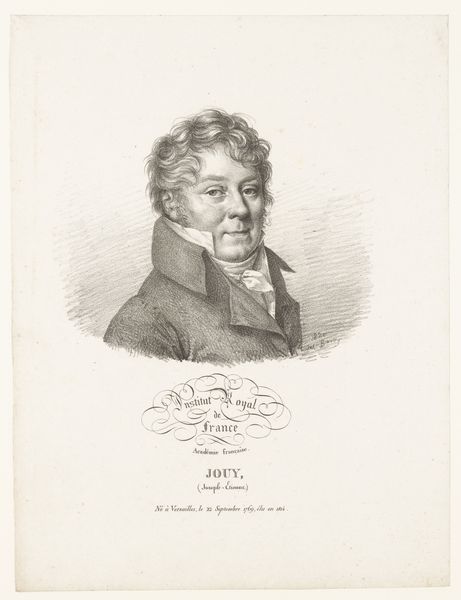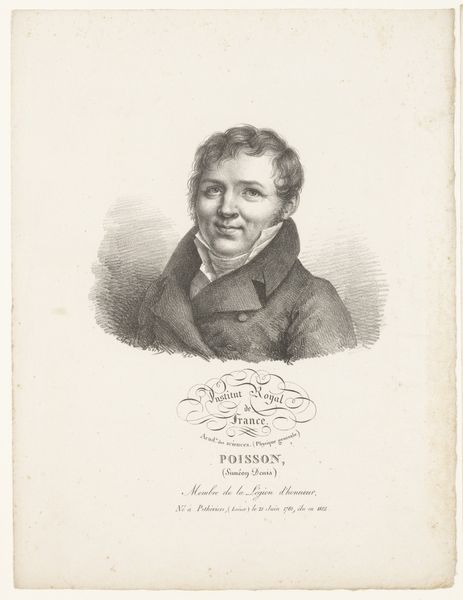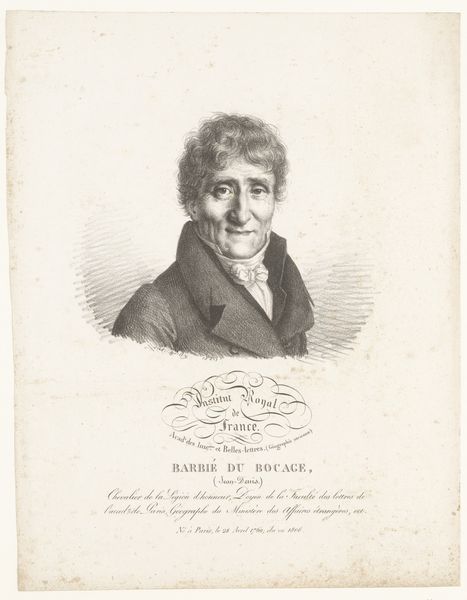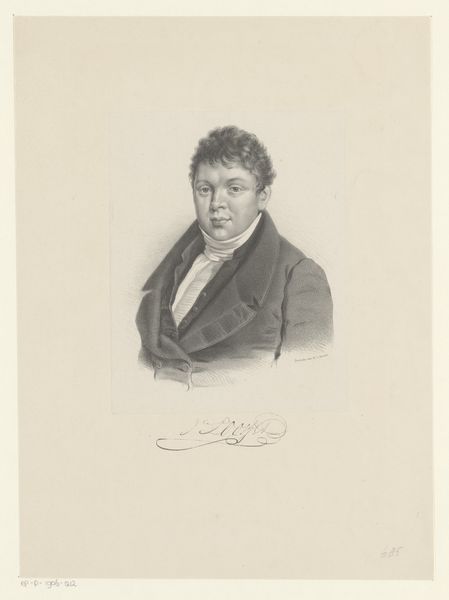
print, engraving
#
portrait
#
neoclacissism
# print
#
old engraving style
#
academic-art
#
engraving
Dimensions: height 358 mm, width 272 mm
Copyright: Rijks Museum: Open Domain
This is a portrait of Jean-Denis Lanjuinais, made by Julien-Léopold Boilly sometime in the 19th century. It’s a lithograph, meaning it was printed from a stone surface using oil-based inks. Now, lithography was an innovative process at the time, allowing for relatively quick and inexpensive reproduction of images. Look closely and you can see the fine network of lines and dots, built up through the printing process to create shading and form. This isn’t the unique mark of a drawing, but rather the result of mechanical production. The use of lithography here is significant. It speaks to the democratizing potential of printmaking, making images accessible to a wider audience. So while this portrait depicts a member of the French elite, the very means of its production hints at broader social shifts, and the rise of a more image-saturated world. It reminds us that even traditional art forms are shaped by the means of their making, and by the social context in which they are created.
Comments
No comments
Be the first to comment and join the conversation on the ultimate creative platform.
